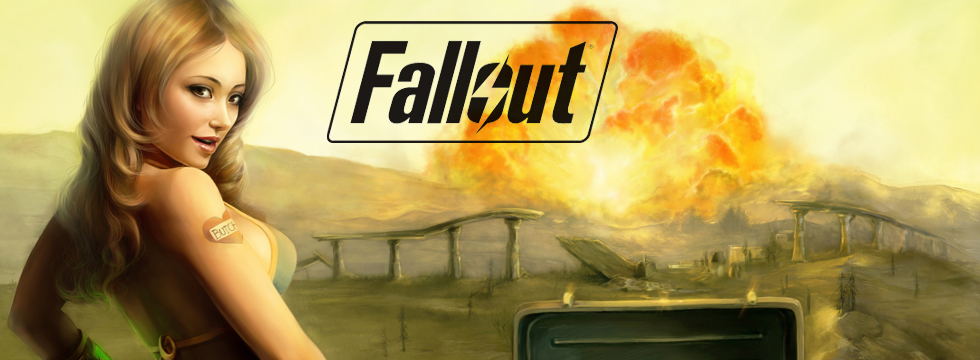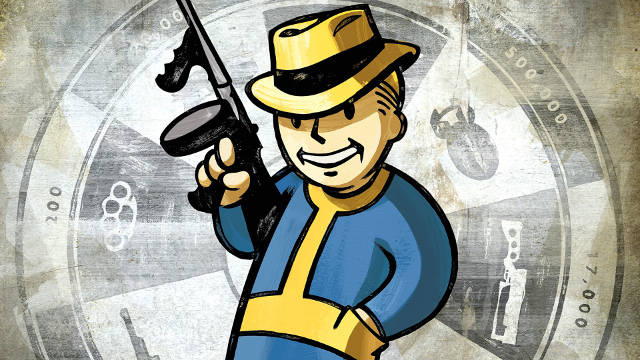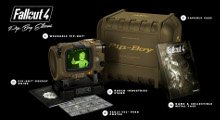Interplay vs. Bethesda - Story of Fallout IP
How could Interplay give away rights to Fallout after releasing two highly praised games?

"We’re extremely excited about this opportunity and what it means both for Bethesda and for Fallout fans around the world. Fallout is one of the great RPG franchises. Millions of Fallout games have been sold worldwide, and fans have been eagerly awaiting the release of a Fallout 3. Bethesda’s proven expertise in this genre, building on our experience and the tremendous success we have enjoyed with our cutting-edge Elder Scrolls series, will enable us to create the next chapter of Fallout that is worthy of the franchise." These are the words released to the press 11 years ago announcing the third installment in the Fallout series. The game itself has been dividing the gamers around the world ever since. There was a new developer working on the installment. Brand acquisition is nothing strange to the game industry but in this case the circumstances were much more complicated. How could Interplay give away the rights to the title after releasing two such highly praised games?
Down the slippery slope
For Brian Fargo and his team the problems began shortly after releasing Fallout 2. Although the studio had quite decent sales overall (not just their post-apocalyptic franchise), it was not enough to pay for the long term investments the game’s development demanded at the time. The debts had to be paid eventually, but Interplay just didn’t have the amount of money necessary to do so. Given the situation, studio decided to make the only viable choice – Interplay entered the stock exchange. The company’s shares on NASDAQ were selling well, the money was there and it looked like everything would turn out fine. Unfortunately, it didn’t. Interplay’s financial problems reemerged a brief 3 years later due to the company’s catastrophic financial management.
To make you realize just how dire the state of Interplay’s finances was at the time, remember that they couldn’t make ends meet despite publishing such famous best-sellers as Planescape: Torment and Baldur’s Gate II. Brian Fargo soon found himself out of options and was forced to sell the whole thing to someone else. Titus Software bought the 35 million dollar worth control interest and began with tearing down the company’s existing structure. You would do the same, however, given the company’s financial results under Fargo’s management – share value decreased by 90% with only one quarter profitable in twelve financial periods. The changes brought by the new management resulted in Fargo himself quitting and his position being given to Herve Caen. To save the company the new CEO quickly decided to sell some of the less popular brands and consecutively fired the whole development team of Black Isle Studios. Drastic measures were taken but they couldn’t avert the inevitable. Interplay’s shares were withdrawn from NASDAQ and the company faced bankruptcy once more. What do you do in such a situation? You sell your most valuable possessions. And that’s exactly what happened.

Selling the (post) apocalypse
The auction took place in June 2004. One of the hot “goods” available were the rights to develop three installments set in the universe of Fallout. The offer attracted fewer buyers than you would expect and eventually ended up in the hands of… Bethesda Softworks. Basking in the success of their latest game, The Elder Scrolls III: Morrowind, Bethesda decided to make use of the good climate it created and expand their market. In less than a month since formalities were dealt with, they announced that the Fallout 3 will be developed as a Bethesda project. The Exclusive License Agreement that was signed as a part of the deal allowed them to develop two more games, although the rights to Fallout brand as such remained with Interplay.
That would be ok, if not for one thing. On the 30th of November 2006, a single day after filing for bankruptcy, Interplay announced a new Fallout MMO in development (the compelling success of World of Warcraft may have had something to do with it). To gather the funds necessary for its development, Interplay resorted once more to selling its intellectual property. This time the deal included not just a limited license usage but the complete rights to the Fallout franchise.

Once again, Bethesda proved to be the company with the most interest, although there were few serious competitors to begin with. Interplay may have expected a larger amount but they were in no position to bargain and subsequently the Fallout franchise became Bethesda’s property for the price of 6 million dollars. The deal was sealed on the 4th of April 2007 with the signing of Asset Purchase Agreement and an additional Trademark License Agreement that allowed Interplay to continue the development of their previously announced MMO game. This second document, however, came with some severe prerequisites – the development of this game is to begin no later than the 4th April of 2009, it is to be developed exclusively for PC, it has to be built around microtransactions or the subscription model and finally, the developers will have to gather 30 million dollars necessary for making the game by themselves and are obliged to return 12% from the revenue to Bethesda. Unless all of these conditions are met, the Fallout MMO would become Bethesda property. Seems harsh but at least it’s clear, right? Right, except the new owners of Fallout most likely knew that Interplay has almost no chance of making that happen.
Are we good, buddy?

Bethesda and its owner, ZeniMax, wanted to completely and positively secure everything that had a connection to the Fallout brand. Not so long ago the usage of names Nuka Cola and Pip-Boy – the two most famous icons of the Fallout post-apocalypse – became legally restricted. The problem here is not the image; it’s about really big money. With the approaching release of Fallout 4 the amount of Fallout merchandise Bethesda is expecting to sell becomes a substantial part of company’s income. For example, the collector’s edition, which finally included a Pip-Boy replica, sold out in the span of few hours after its announcement and so do fresh shipments delivered to the stores.
Soon after making the agreement, both sides focused on dealing with projects at hand – Bethesda published Fallout 3 shortly after and, while disappointing the long standing fans of the franchise, it hit the sweet spot for the mainstream audience. Excellent sales and high praise from critics and players alike were the complete opposite to what was happening at Interplay at the time. The studio got sued by Glutton Creeper Games – the company responsible for pen & paper edition of Fallout – since the license they bought from Interplay just lost its legitimacy (as you recall, whatever three next installments of Fallout were to be made they would have to be made by Bethesda) putting Glutton Creeper at a serious legal risk. Interplay lost the case and had to pay compensation which didn’t help the state of their finances. On the other hand, Interplay successfully managed to forge cooperation with Interactive Game Group securing the funding necessary for their MMO project. Preliminary meetings led both parties to an agreement on the details and the idea managed to wake sufficient interest in potential investors for the cooperation to be publicly announced on the 2nd of April 2009. This would be wonderful news except the deadline for the game’s development and gathering the required 30 million dollars mentioned in the TLA expired two days later.


